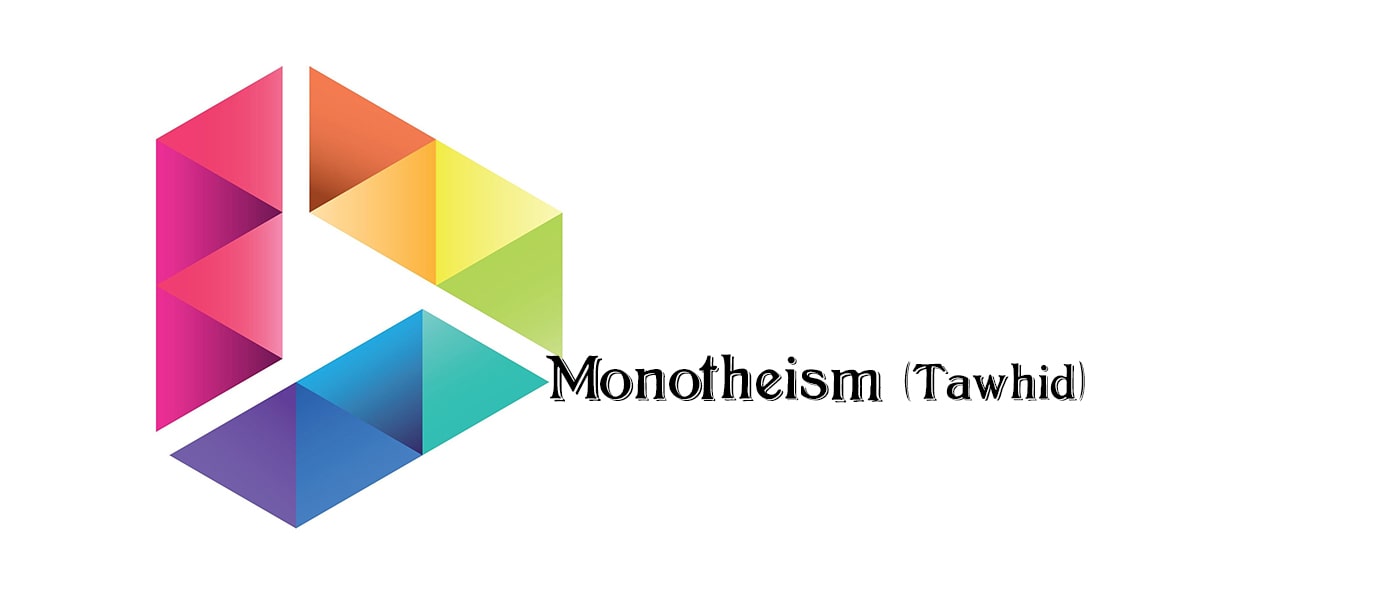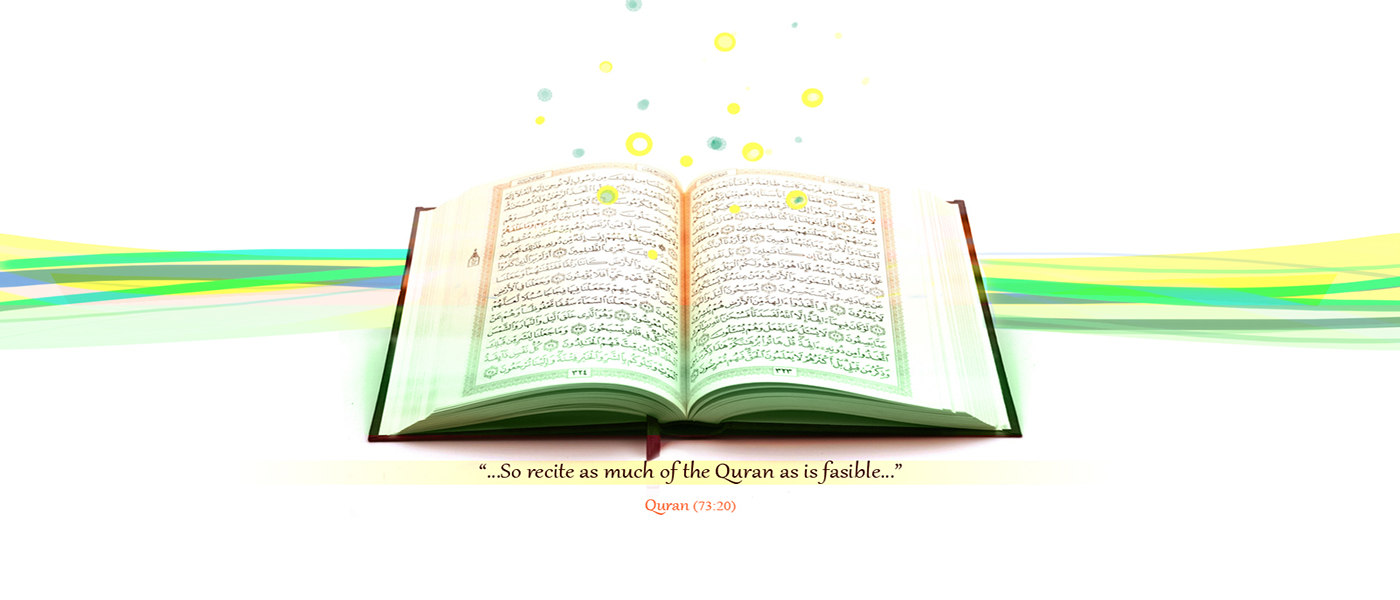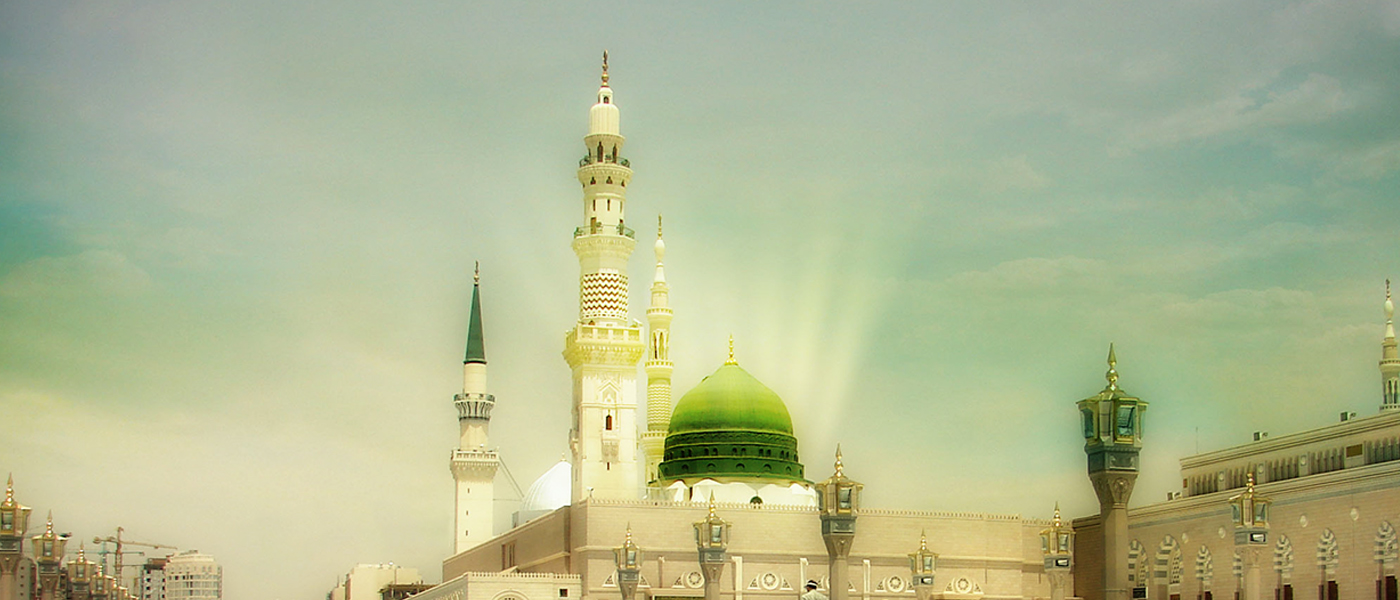

Degrees of Monotheism
Now that we have gone through the axiom of monotheism and accepted it as a logical and rational principle, we should note that this belief is much more complicated than it seems. In order to reach a firm belief in the existence of God and His Oneness, one has to follow each of its stages.
These degrees include “unity of the essence of Allah”, “unity of the attributes of Allah”, “unity in what Allah does” and “unity in worship”. The first three of these belong to the realm of theoretical monotheism, while the last one is among practical monotheism. Here we will have a brief look at each of these steps.
1. Unity of the Essence of Allah
This stage of monotheism is defined as believing that God is One and Unique in His essence. The very first thing that one assumes regarding Allah is that of His Self-dependence; He is a being who is not dependent on any other beings in any way, while everything depends on Him and seeks His help.
Secondly, one has to believe in His Creatorship; that He is the creator and the ultimate source of all the existing things, all things are from Him, and He is not from anything. Accordingly, He is called the First Cause. The unity of essence, thus, means that this being is not multiplicable, and there is nothing like it. Since the self-existing truth is one, then this world has only one source and one end; it has neither originated from various sources nor will return to various ones, the whole universe has one center, one pole, and orbit.
2. Unity of the Essence and Attributes of Allah
It is defined as the recognition that the essence and the attributes of Allah are identical and that His various attributes are not separate from each other. While the Unity, in essence, refers to God’s Oneness, denying the existence of any peer or like for Him, the Unity in attributes means the negation of any kind of multiplicity or plurality within His essence.
All the attributes implying perfection and beauty belong to Him, and they are not at all separate from Him. The separation of the essence from the attributes and their separation from each other are the characteristics of a limited being, while God is infinite and such characteristics cannot be ascribed to Him. Accordingly, Allah has attributes which are unlimited – like His own self – and identical with His essence.
3. Unity in What Allah Does
The Unity of His work is to recognize that the world with all its systems is the work of Allah alone and has originated from His will only. Nothing in this world has occurred on its account and independent from God; every agent, cause or power owes its existence and effect to Him.
As He has no partner in His essence, He has no peer in what He does either. While human beings, as one of these agents and causes, have control over their own actions and can influence their destiny, they are not at all out of God’s will and supervision; otherwise, we should consider them as God’s partners, which will ultimately deny God’s unity in essence.
4. Unity in Worship
Reaching this stage is when one only worships God and has prepared himself for praying Allah, the One. Based on Islamic doctrine, the act of worship has its own degrees, the clearest of which is the performance of the rites for Allah’s glorification and exaltation.
According to Holy Quran, worship is not limited to the actual performance of prayer but includes any form of spiritual orientation and idealization; the person whose purpose and motivation in life only satisfies his own whim has, in fact, led his spiritual direction toward it and thus worshiped it instead of God. So, the unity in worship is to see Allah as the only one who is fit to be worshiped and obeyed unconditionally and regard Him as the only purpose and direction of one’s conduct.
What Is the Difference between Theoretical and Practical Monotheism?
The first three degrees are all theoretical and a matter of creed - they should be recognized and acknowledged, and require rational thinking- while the fourth one is practical and a necessity for all of our actions.
Moreover, theoretical monotheism gives an insight to perfection while practical monotheism is the actual movement toward it; it is only seeing God’s Oneness and finding knowledge about it while practical monotheism is experiencing and feeling these beliefs tangibly in all walks of life.
In other words, theoretical monotheism provides the basis and foundation of practical monotheism; on the other hand, without bringing those beliefs into action, they would become deficient and imperfect.
Share This Article

6 Facts That Prove the Quran to Be Allah's Words
Allah Almighty is the all-knowing all-wise creator. He has considered a unique way of perfection for every creature and then guided it to reach its excellence (20:50). Human beings, as autonomous creatures, are in real need of divine guidance to know how to live a perfect and purposeful life. According to Islamic beliefs, the Quran is the divine revelation to Prophet Muhammad PBUH&HP that contains necessary guidelines for human beings: "As We sent to you an Apostle from among yourselves, who recites to you Our signs, and purifies you, and teaches you the Book and wisdom, and teaches you what you did not know." (2:151). The question is that, is the Quran Allah's words? Let's see why the answer is: Yes.
1. The Holy Quran and the Prophetic Narrations are Not of the Same Style
If the Quran was Prophet Muhammad's PBUH&HP words, his PBUH&HP narrations should have been of the same eloquence and beauty of the Quran. But that's not the case. The Quran is unique in style, expression system, and arrangement. And that's why no one has been able to bring even a chapter (Surah) similar to that of the Quran. As the Quran says: "And if you are in doubt concerning what We have sent down to Our servant, then bring a Surah like it, and invoke your helpers besides Allah, should you be truthful." (2:23). Although the prophetic narrations are articulate and eloquent, some of them have been imitated and distorted, unlike the Quran [1].
2. Prophet Muhammad PBUH&HP Never Claimed These Words to Be His
If the Quran were Prophet Muhammad's PBUH & HP words, it would have been logical for him to claim that these eloquent words were his. Consequently, he could have promoted his position, fascinated his opposers, and gathered more followers. But, he never intended to be considered and praised as a superior power. On the contrary, in one instance, someone came to him and was uneasy because of his magnificence and grandeur, he said: "Calm down! I am not a king" [2].
3. The Objection of Prophet Muhammad's PBUH&HP Oppposers Were not Answered Immediately
In some of the Quranic verses, the objections and disagreements of Prophet's PBUH&HP opposers are answered. If the Quran was Prophet Muhammad's PBUH&HP words, all these verses should have been quickly revealed right after an objection was raised, or when he was insulted or oppressed. But, this was not always the case [1].
For example, the Qiblah at the time of Prophet Muhammad PBUH&HP was originally the Noble Sanctuary (Al-Aqsa Compound), similar to Judaism. That was a reason for Jews to mock Muslims and say that Muslims follow them; hence, they are superior. Prophet PBUH&HP waited 16 months for the divine revelation to let him change the Qiblah while he was disturbed by Jew's words. It was after such a long delay that he received a response: "turn your face towards the Holy Mosque, and wherever you may be, turn your faces towards it!" (2:144). If the Quran was Prophet Muhammad's PBUH&HP words, he could have changed the Qiblah much sooner and suffer less.
4. Some Verses of the Quran Warn Prophet Muhammad PBUH&HP
In some of the verses of the Quran, Prophet Muhammad PBUH&HP is warned. In Surah Tawbah, he is told that: "May Allah excuse you! Why did you grant them to leave [to stay behind] before those who told the truth were evident to you, and you had ascertained the liars?" (9:43), or in another Ayat: "A prophet may not take captives until he has thoroughly decimated [the enemy] in the land." (8:67). Is it logical at all that someone blames himself and makes it public?
5. Prophet Muhammad PBUH & HP Was not Able to Read and Write
Prophet Muhammad PBUH&HP was not literate, and this is stated in the Quran and historical records. "You did not use to recite any scripture before it, nor did you write it with your right hand, for then the impugners would have been skeptical." (29:48). So, how can someone illiterate bring such eloquent words?
6. There is no Contradiction in the Quran
This holy book was revealed for 23 years. And something astonishing about the Quran is that there is no contradiction among the verses of it. If it was a human's words, there surely existed contradictions and errors in the Quran because human beings are forgetful, and for example, they forget what they told two years ago. But, this is not true about the Quran.
References:
- Allah's words
- M. H. Hakimi, et al. "Al-Hayat," vol. 2, Translation: A. Aram, Iran, 1986.
Read More

Is Muhammad (PBUH&HP) the Last Prophet?
“Muhammad is not the father of any man among you, but he is the Apostle of Allah and the Seal of the Prophets, and Allah has knowledge of all things” (33:40).
Based on some Islamic narrations, God has sent as many as 124000 prophets to humankind throughout history in different lands; the first of whom was Prophet Adam (AS), and the last divine prophet was Prophet Muhammad (PBUH).
Why Did God Send Prophets?
What do you think was the primary purpose for which the prophets were raised? God says in the Holy Quran:
“O Prophet! Indeed, We have sent you as a witness, as a bearer of good news and as a warner. and as a summoner to Allah by His permission, and as a radiant lamp” (33:45-46)
“Certainly We sent Our apostles with manifest proofs, and We sent down with them the Book and the Balance, so that mankind may maintain justice;” (57:25)
According to the verses above and many other verses in the Quran [i], prophets were all sent to awaken the inner prophet within each person (i.e. people’s reason), guide them to the right path and invite them to monotheism (worshipping the only One God), which would ultimately lead to their well-being and salvation here in this world and also the hereafter. In fact, no one can deny the effective role prophets had in different aspects of people’s lives in history, as Will Durant puts:
“There is no significant example in history, before our time, of a society successfully maintaining moral life without the aid of religion. France, the United States, and some other nations have divorced their governments from all churches, but they have had the help of religion in keeping social order” [1].
Did Different Prophets Bring Different Religions?
Now you might wonder, “if God is One and all the prophets were sent to bring us closer to Him, then why would He send different religions?”
From the Quranic point of view there is No such thing as different religions, but rather “all Prophets irrespective of the fact whether they had or did not have an independent code of law, had the same mission and preached the same message” [2]. Quran says:
“Indeed, with Allah religion is Islam, and those who were given the Book did not differ except after knowledge had come to them…” (3:19)
So, why would God send as many as 124000 prophets?
The answer is God’s message had to be renewed and developed according to the requirements of the time, the environment and also the people to whom God’s prophets were sent. Based on the stage of human development in each time and environment, a preaching or law-giving prophet [ii] would come to restore the divine message which had previously been changed, destroyed or distorted by people.
Was Prophet Muhammad (PBUH&HP) The Last Prophet?
As stated above, people’s intellectual immaturity was the main reason why God renewed his message and developed it over time. However, by the advent of Islam and revelation of the holy Quran, humanity had passed the period of its childhood and had become mature enough to preserve its intellectual heritage, i.e., the religion of God. One thing that proves human’s maturity at the time of Prophet Muhammad (PBUH&HP) is that literacy had become more common among people.
That is why the Prophet’s (PBUH&HP) main miracle is not of anything physical, material and time-dependent, instead, it is a book which is made of words understandable for people of all times. In other words, God, then, guides people and shows them His signs using words (Quran) not by events like parting the sea (led by prophet Moses) or healing the blind or the sick (led by prophet Jesus). God’s message, accordingly, was revived through the revelation of the holy Quran and hence, Muhammad (PBUH&HP) was the last prophet of God.
There Is No Need for a New Prophet
It is noteworthy that the majority of divine prophets were the preaching ones who would interpret and spread the teachings of the law-giving prophets. But now that God has provided all requirements for humans to achieve their individual and social perfection giving them His book of guidance and wisdom to think, and people have reached a higher intellectual stage and become mature enough to interpret God’s message [iii], there won’t be a need for a new prophet.
At this age of knowledge, the religious scholars are capable of applying the general principles of Islam to the requirements of the time and place and deducing the rules of religious laws [2]:
“The scholars are the inheritor of prophets” Imam Sadiq [4].
It is clear from what has been discussed above that the intellectual maturity of human has played an essential role in the finality of prophethood in several ways:
It has enabled man to receive his evolutionary program all at once and not by stages,
It has enabled him to keep the celestial Word of God (Quran) unaltered,
It has enabled him to interpret the revealed word of Allah, preach and propagate the teachings of religion and apply the religious principles to all the changing circumstances [2].
The last mentioned task is now performed by religious experts (Mujtahid) and is named Ijtihad meaning striving and making an effort to deduce the divine laws of Islam from the reliable sources and proofs.
Finally, …
The finality of prophethood does not mean that humanity is now able to dispense with religion. It is the need for prophets and the revelation of God that has ceased to exist, which is only because God’s message has been immune to any sort of alteration or distortion since the advent of Islam:
“Indeed We have sent down the Reminder, and indeed We will preserve it” (15:9)
This message is indestructible, and all people of next generations can have a recurring experience when dealing with it, irrespective of time.
However, God has never left the earth devoid of His guidance, and Imams as the successors of the Holy Prophet (PBUH&HP) have played the main part in maintaining humans’ spiritual connection with God from then on.
Notes:
[i] “Certainly We raised an apostle in every nation [to preach:] ‘Worship Allah, and shun fake deities.’ Among them were some whom Allah guided, and among them were some who deserved to be in error. So travel over the land and observe how was the fate of the deniers” (16:36). Also see: (7:59, 7:65, 7:85 and 7:73)
[ii] The messengers of God where either law-giving, who would be sent with a noble message and guidance and whose number did not exceed the fingers of one hand, or preaching who would spread and propagate the teachings of the law-giving ones.
[iii] "We ought to present you with the principles and you ought to arrive at specific conclusions from them." Imam Sadiq (AS) [3]
[iv] the holy Quran, the tradition of the holy prophet and 12 infallible Imams (Sunnah), consensus (Ijma`), and reason (`Aql)
Reference:
- Mand and Universe
- Wasail al-Shia, Bab 6, Hadith 51, 52
- al-Kafi, vol. 1, p. 32, Hadith 2
Read More

